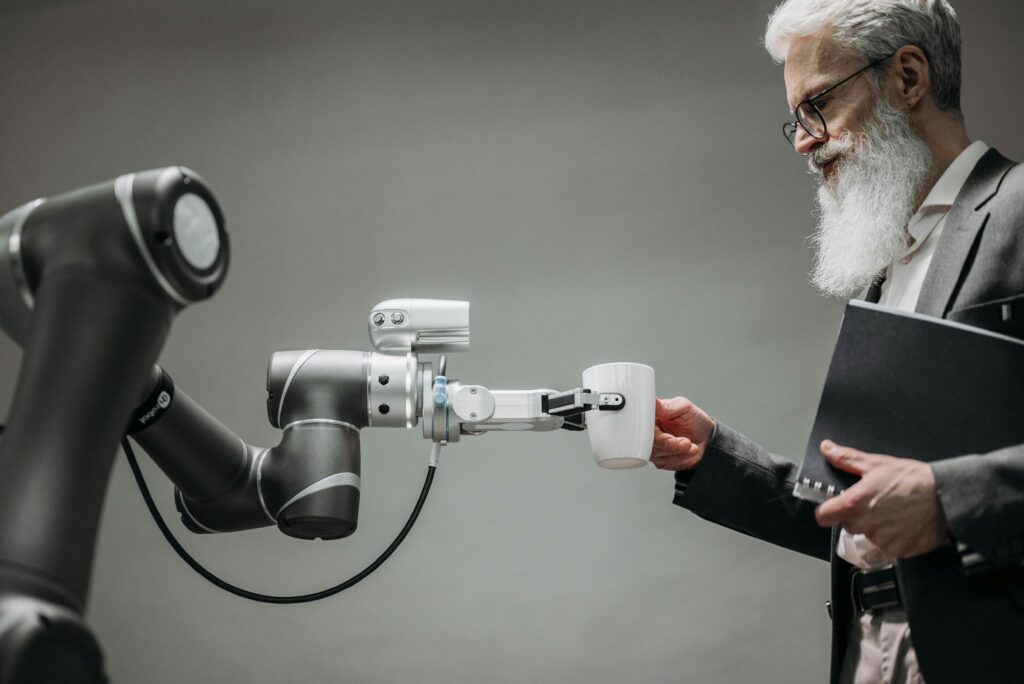AI and Automation in the Workforce – What’s at Risk?

Table of Contents
Introduction
As we step into an era dominated by technology, the intersection of automation and artificial intelligence (AI) is reshaping the job market in unprecedented ways. According to a 2022 World Economic Forum report, over 85 million jobs may be displaced by the shift toward technology by 2025, while 97 million new roles will emerge, fundamentally altering what the workplace looks like. This drastic change begs the question: How exactly is AI transforming the job market, and what implications does this have for you as a worker or employer?
In this article, we will explore the dynamics of the AI job market, the challenges and opportunities it presents, and how you can adapt to ensure that you remain relevant in this evolving landscape.
The Rise of AI and Automation in the Workplace

Defining AI and Automation
Artificial Intelligence refers to systems or machines that mimic human intelligence to perform tasks and can iteratively improve themselves based on the information they collect. Automation, on the other hand, involves employing technology to perform tasks that would typically require human intervention. Together, these forces are redefining productivity and operational efficiencies across numerous industries.
Key Statistics Highlighting the Shift
- By 2030, it’s estimated that up to 375 million workers worldwide may need to switch occupational categories due to automation.
- A McKinsey study shows that up to 45% of work activities can be automated using current technology.
- Industry trends suggest that sectors like manufacturing, transportation, and retail are among the most significantly impacted by AI implementation.
The Effects of AI on Job Roles
Job Displacement vs. Job Creation
A frequent concern in discussions surrounding automation is the fear of job displacement. Many traditional roles are indeed at risk; however, new job categories focusing on technology-related skills are emerging, such as data analysts, AI specialists, and machine learning engineers.
Displaced Jobs:
- Fast food workers: Automation is increasingly used for order-taking and food preparation.
- Manufacturing: Robotics can perform repetitive tasks with greater efficiency than human labor.
- Customer support: AI chatbots are handling an increasing volume of customer interactions.
Emerging Jobs:
- AI ethicists: As AI grows, the need for professionals who can navigate ethical implications rises.
- Robotics technicians: Careers in maintaining and developing robotic systems are on the upswing.
- Data privacy specialists: As data becomes central to AI applications, the need for data governance will grow.
Reskilling and Upskilling
To remain competitive in the AI job market, continuous learning is crucial. Worker retraining programs are more important than ever as organizations adapt to technological advancements. Here are some ways individuals can prepare:
- Attend Workshops and Online Courses: Platforms like Coursera, Udacity, and LinkedIn Learning offer specialized courses on AI and data science.
- Participate in Industry Conferences: Networking and learning from experts can provide insights into new trends.
- Seek Mentorship: Finding mentors already thriving in tech sectors can facilitate knowledge transfer.
The Advantages of Automation in the Job Market
Increased Productivity
One key benefit of integrating AI and automation into the workplace is the considerable boost to productivity. Automated systems can streamline processes, allowing humans to focus on more strategic roles that demand creativity and critical thinking—areas where machines fall short.
- Efficiency Gains: Tasks that once took hours can be completed in minutes.
- Reduced Error Rates: Automation minimizes human error, ensuring accuracy in data handling.
Enhanced Job Satisfaction
By offloading menial tasks to machines, employees can find greater fulfillment in their roles. This shift promotes innovation and can lead to more satisfied and engaged workforces.
- Increased Creativity: Time saved from repetitive tasks allows for brainstorming and innovation.
- Better Work-Life Balance: Automation can lead to reduced hours for certain roles, enhancing overall employee well-being.
Challenges Posed by Automation and AI
Skills Gap
While AI creates new job opportunities, it simultaneously widens the skills gap. Many workers may find themselves ill-equipped to handle the new technology, necessitating urgent attention from educational institutions and governments to provide relevant training.
Economic Disparities
The rise of AI often exacerbates economic inequality. Higher-skilled workers may see their demand increase, while those in lower-skilled jobs without access to reskilling programs could face significant hardship.
Navigating the AI Job Market
Strategies for Companies
For businesses, adapting to the AI job market requires strategic foresight and planning:
- Invest in Employee Training: Companies should prioritize reskilling and upskilling current employees to leverage new technologies effectively.
- Embrace Diversity in Recruitment: Diverse teams can drive innovation and adaptability in a rapidly changing environment.
- Collaborate with Educational Institutions: Partnerships with local colleges and universities can help ensure that graduates are adequately prepared for the job market.
Strategies for Workers
As an individual in today’s competitive landscape, it’s vital to take proactive steps:
- Stay Informed: Keep abreast of industry trends and technological advancements.
- Network within Your Industry: Engaging with peers can lead to new job opportunities and insights.
- Focus on Human-Centric Skills: Skills such as emotional intelligence, critical thinking, and creative problem-solving will be invaluable.
Conclusion
The advent of AI and automation is undeniably transforming the job market, presenting both challenges and opportunities. While traditional jobs may vanish, new roles will rise, emphasizing the critical need for reskilling and continuous learning. By adopting a proactive approach, workers and companies can navigate this evolving landscape successfully.
Call to Action
How do you perceive the impact of AI on your career or your organization? Are you taking steps to adapt to these changes? Share your thoughts in the comments below, and let’s engage in a meaningful discussion on the future of work in the age of AI. For those seeking more resources on navigating the AI job market, check out our additional articles on skills development and career planning in technology.




